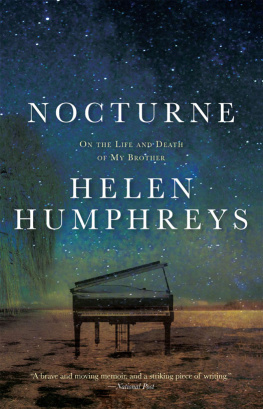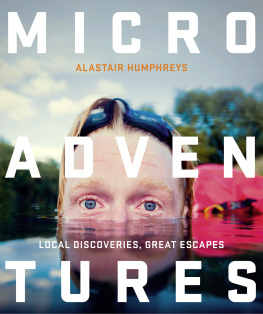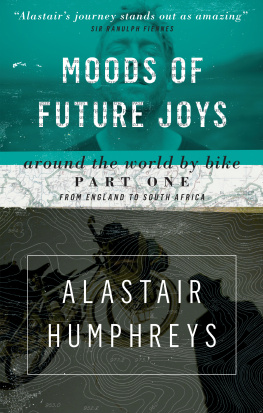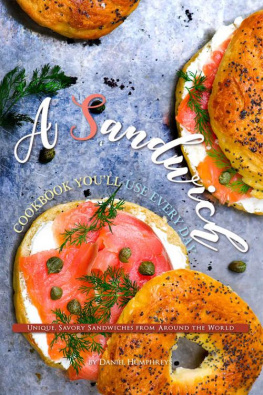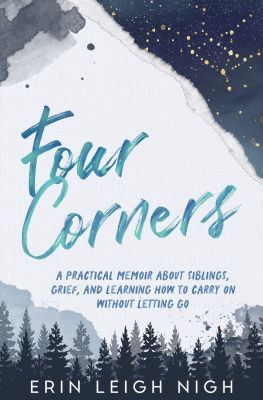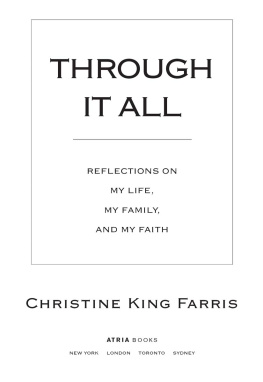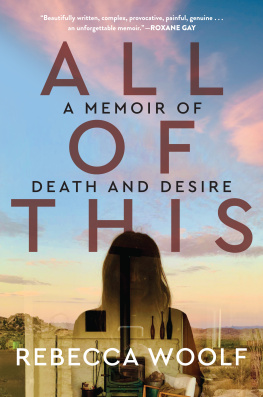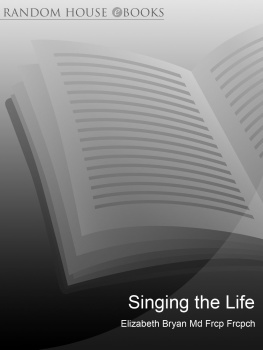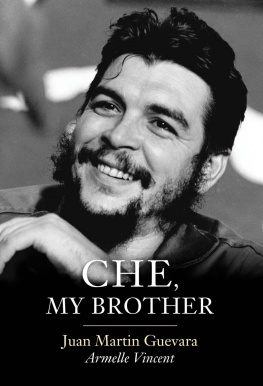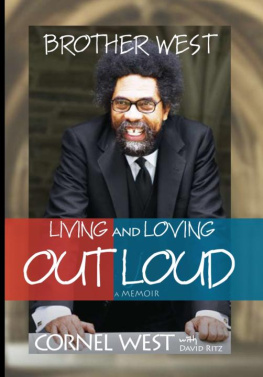NOCTURNE
On the Life and Death of My Brother
HELEN HUMPHREYS

I
TACET
II
TACET
III
TACET
1961 score of 4 33 by John Cage
For my sister
This is what happened after you died.
We took the plastic bag with your clothes, and the plastic bag with your pills. The bag with the pills weighed more.
Outside, the sky was red over the mountains and the air was cold as we walked through the parking lot. It was 5:30 in the afternoon of December third. You had died at 4:20, in room 351 of the Burnaby General Hospital in Vancouver.
You looked more like yourself with the tubes in you than when we unhooked you from the ventilator. At the moment of your death you left us so quickly that it was almost the most shocking thing.
On the wall of the nurses station were the ICU rules of conduct. The number one rule was to always offer the patients family some hope. You would have laughed at that, if you had been alive.
Later, when you came to me in the dream, you were wearing your old jean jacket, which meant that we were teenagers, still living in our parents house. You said that it was hard work to be dead, and you asked me to tell you what had happened since you died.
So I write this down for you.
The dog lies on the rug making suckling noises while she sleeps. Shes still a puppy, still bouncy with energy one moment, then flopped over with exhaustion the next. Hazel, the dog you knew, is dead. In an awful confluence of events, she died the same week that you did, Martin, although her death was an easier one than yours. The vet came to the house. Before that the dog ate a piece of steak and a whole chocolate bar. Before that I took her for a drive past all the places where we had once lived together, and the green spaces where she liked to run.
I probably got the new Vizsla too soon after the old one, but her need of me has turned out to be a good thing.
Its late at night. The house is quiet, and the world outside is quiet too. The sun set earlier behind a grey bank of clouds that promised rain all day and never delivered.
On a clear evening, I can see the sunset from the dining-room window, which faces west. I have a new house from the one you remembera white row house on the other side of town. It has large, spacious rooms and when I first moved in last summer I brought no furniture with me, just a mattress that I put on the bedroom floor, and a couch for the living room. I ate standing up at the counter in the kitchen, or sitting on the couch and balancing a plate on my knees. It was a relief to have nothing in the house. I liked the echo of the empty rooms. I liked not being surrounded by my possessions and the memories attached to them.
Its late, Martin, but if you were alive, you would be awake too and I could call you up now and we would talk into the night. I would tell you that the old guys next door put six solar-powered lanterns on the path up to our houses, making the approach look a bit like a runway, only now two of the lanterns (the ones on my side of the path) dont work, but I havent the heart to remove them.
I would tell you that the people on the other side of me have moved out, and how I woke one night when they were still living there to hear the man calling out, repeatedly, Oh Lord, Jesus Christ, and I thought they were having a religious revival meeting at three in the morning, until I came to my senses and realized they were just having sex.
You would like that story, although you might not be listening to me, might be distracted and making a kind of humming noise that was supposed to mean you were listening when I knew, in fact, that you werent. I would have to say, Youre not listening to me, and you would say, What? and then we would both laugh.
Youre buried here, in this town, Kingston, a place you never lived. But it seemed better to put you where our sister and I could look after your grave than to have you buried where you chose to live, three thousand miles away on the West Coast. Im pretty sure you wouldnt approve of this decision, but it seemed important. Cathy goes out to the cemetery most weeks and cleans your stone, which is black and shiny, like the grand piano you used to play. We put the first two bars of one of your last compositions on the stone and your name, Martin James Humphreys, and the dates, May 20, 1964December 3, 2009, that bracketed your short life, and the single word Pianist underneath that.
Youre buried in a plain pine box, and because we didnt want you embalmed, your body is in a steel liner inside that box so that you could be flown east on the plane. The steel liner made your coffin very heavy, and on the day of your funeral we staggered under the weight of it as we carried it from the hearse to the graveside. The day you were buried was cold and windy, so bitterly cold that the whole affair seemed like a scene from a Russian novel. I accidentally locked Dad in the car when we got to the cemetery. He banged feebly on the windshield and it took a while before someone heard his muffled yelling and came to tell me. We lurched over the snowy ground with your coffin and the wind filled out the vestments of the minister so that she looked like a chess piece as she said the words over your body. Mum had taken a photo of your dead body as you were put into the steel liner at the funeral parlour in B.C. I dont know why she did this, and I have refused to look at the photo. I watched you die and I dont want to see you dead, to be reminded that you are dead, but I cant say that Ill never look at that photo, because one of the things I have learned about death is that it makes you behave in ways you never thought you would. For example, I have read all your e-mails on your computer, after fiercely guarding them from everyone, fiercely defending your privacy, until one night when I couldnt sleep I gave in and read the few hundred messages that you had sent in the last couple of years.
You would really hate that I did that and Im sorry. It was only your voice I wanted. I was desperate for it. I didnt bother with the replies.
I come to the cemetery in a kind of ad hoc fashion. Sometimes I pick up a coffee and drink it out there, standing with my back to your gravestone. I like how the sun warms the stone and how the stone keeps the heat a little way into the evening, keeps it longer than the air. Its strange, but when you died and the heat started leaking from your body, it left you at exactly the pace that a stone cools after being in the sun all day. It makes me think that we are made of the natural world after all, attached to it more securely than I had realized.
Your grave is on a slight rise and looks down over a small ravine. In the winter there are bird and rodent tracks in front of your stone. A few times I came out with birdseed to spread on your grave. I liked the idea of the birds landing there and feeding and flying off again. I liked the idea of movement in this place that is so still.
On Christmas Day I drove out and the cemetery was full of other people clustered round the graves of their loved ones. Some were drinking a toast to their dead. Some had brought flowers and wreaths and small gifts to place in front of the stones. It was comforting to have the company of these other mourners, even though we never said a word to one another.
We planted spring bulbs in front of your grave because you were born in the spring and it will be nice to have flowers opening on your birthday. At the back of your grave we put a small rose bush that has the fragrance of apple blossom. Mum buried your christening mug in front of the stone so that it could be filled with water and hold fresh flowers. I remember your christening mug. It was a good mug to drink apple juice out of when we were children because the metal made the juice taste sharper and kept it cold.

